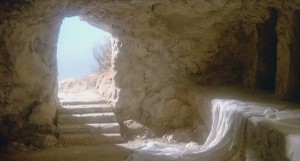The Resurrection of Jesus Is a Historical Event
In recent years, studies of Jesus’ resurrection have taken surprisingly positive directions. This does not mean that contemporary critical scholars now accept exactly what Scripture states. However, there is a newfound respect for some of the New Testament (NT) reports. We will mention key areas leading to these developments and address their significance.
Early Traditions of Jesus’ Resurrection Embedded in the New Testament Writings
Arguably the most exciting development in recent decades is the almost unanimous recognition of scholars that the NT contains many items that predate the book in which they appear. This means the NT authors frequently made use of earlier sources–traditions, creeds, or confessions that they had gathered or received from others. Examples include a reliable statement received from others (1 Corinthians 11:23-26; 15:3ff), repeating the words of what was likely an early Christian hymn (Philippians 2:6-11) and summarizing an early sermon (such as Acts 1:21-22; 2:22-36; 3:13-16). These sources had different applications, such as keeping a reliable record, passing on doctrine, or serving liturgical functions like worship.
